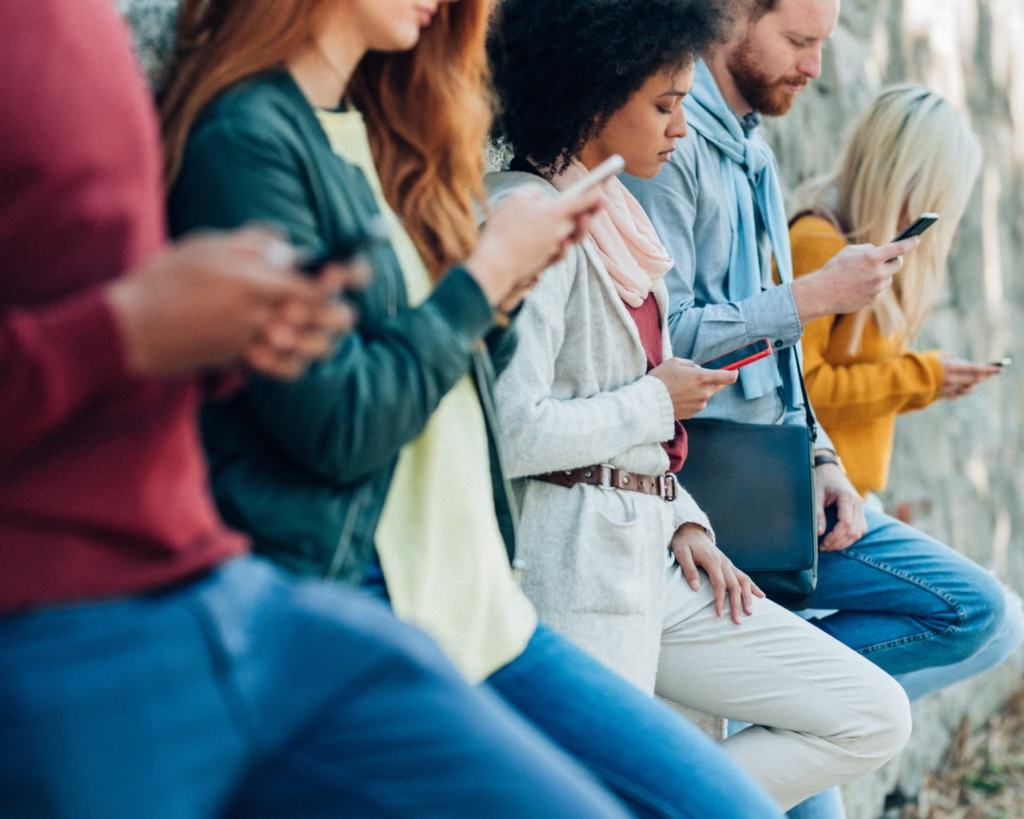Understanding Social Media Addiction
Social media addiction is a complex behavioral issue caused by excessive use of social media platforms. It involves psychological patterns where users feel an overwhelming urge to engage with these platforms. This often leads to prioritizing social media over other important activities. Psychological research identifies traits like loss of control, compulsive behavior, and continued use despite negative effects. Many platforms are designed to maximize engagement using notifications, likes, and shares. These features trigger dopamine releases in the brain, reinforcing addictive usage patterns.
The prevalence of social media addiction is alarming, with studies indicating that a significant proportion of the population struggles with problematic social media usage. Statistics reveal that over 50% of individuals aged 18 to 29 use social media daily, with many checking their accounts multiple times throughout the day. This demographic is particularly vulnerable, as they are more likely to experience the effects of social media on mental health, including social media anxiety and depression. Signs of social media addiction may include neglecting real-life relationships, excessive screen time, and feelings of anxiety or irritability when unable to access social media.
Understanding the effects of social media on mental health is crucial in addressing online addiction. Individuals may develop unhealthy social media habits, such as comparing themselves to others or seeking validation through likes and comments, which can exacerbate feelings of inadequacy. Furthermore, studies have indicated correlations between excessive social media use and negative mental health outcomes, highlighting the need for mental health awareness and education regarding healthy social media usage habits. Recognizing the signs of social media addiction allows individuals to make informed choices and seek intervention, potentially improving their mental well-being.
The Impact on Mental Health
The pervasive presence of social media in daily life has become a topic of considerable discussion, particularly concerning its impact on mental health. Excessive social media usage can lead to various psychological challenges such as anxiety, depression, and feelings of loneliness. The constant barrage of curated lives often triggers negative feelings of inadequacy and comparison, which can significantly detract from a user’s self-esteem and overall sense of well-being. Research indicates that the effects of social media on mental health are particularly profound among adolescents and young adults, who may be more susceptible to these influences.

Many mental health professionals point to the cycle of social media addiction, where individuals find themselves trapped in an endless loop of scrolling and engagement. This behavior not only exacerbates existing mental health issues but has the potential to create new conditions as users navigate the pressures of online interaction. Users frequently confront social media anxiety, stemming from the fear of missing out (FOMO) or the need for validation through likes and comments. This anxiety can lead to withdrawal from in-person social activities, further isolating individuals and worsening their mental health state.
Additionally, the negative effects of social media extend beyond immediate feelings of inadequacy. The rise of cyberbullying and the aggressive nature of some online interactions can lead to significant distress, affecting mental well-being. In response to these challenges, mental health advocates have emphasized the importance of mental health awareness and the necessity for users to establish healthy social media habits. Concepts like digital detox, which involves taking intentional breaks from social media platforms, have gained popularity as a strategy for overcoming social media addiction and promoting better mental health outcomes. Addressing online addiction is vital in fostering a healthier relationship with digital platforms and enhancing mental well-being in an increasingly connected world.
Identifying Healthy vs. Unhealthy Social Media Use
Understanding the distinction between healthy and unhealthy social media use is paramount for safeguarding mental health. The pervasive nature of social media can lead to feelings of anxiety and depression if not managed correctly. To assess personal usage, individuals should reflect on the time spent on various platforms, the motivations behind their engagement, and the emotional responses elicited by scrolling through feeds. Asking oneself questions like, “Do I feel pressured to check notifications?” or “Do I often compare myself to others online?” can provide valuable insights into one’s online habits and mental health.

Mindful consumption practices are essential in establishing a balanced relationship with social media. Users can start by setting specific times for social media usage, avoiding late-night scrolling, and curating their feeds to include uplifting and positive content. Engaging with groups that foster community support and mental well-being can make the online experience more beneficial. By focusing on connections that enhance emotional health rather than those that trigger feelings of inadequacy, users can mitigate the negative effects of social media on mental health.
Self-awareness is a crucial component in this evaluation process. Regularly checking in with oneself regarding emotional responses to social media activity can help identify patterns of social media addiction. For instance, feelings of anxiety after extensive social media use may signal a need for a digital detox or a reassessment of one’s engagement habits. Conversely, positive interactions and community-building activities can indicate healthy social media use. Individuals should embrace content that inspires and motivates while disconnecting from sources that lead to social media anxiety or exacerbate feelings of social media and depression. By fostering healthy social media habits, users can enjoy the benefits of connectivity without compromising their mental health.
Strategies for Managing Social Media Use
As social media plays an integral role in our lives, finding effective strategies to manage its usage is crucial for mental well-being. One of the first steps in addressing online addiction is to establish clear boundaries. Individuals can define specific times during the day for social media engagement, reducing impulsive checking and ensuring that it does not encroach on personal interactions or relaxation. By prioritizing real-life connections, users can drastically decrease the negative effects of social media on mental health.
Implementing screen time management tools is another effective strategy. Many smartphones and applications now offer built-in features that allow users to monitor and limit their usage. These tools can provide insights into the amount of time spent on various platforms, encouraging responsible social media behavior. Additionally, setting app-specific limitations can help mitigate the impact of social media anxiety and support a healthier relationship with digital platforms.
Engaging in alternative offline activities is equally important. Pursuing hobbies, exercising, or spending time outdoors can provide a much-needed break from the online world. Such activities can enhance mental health and foster connections that improve well-being, allowing individuals to counterbalance the effects of social media. Furthermore, mindfulness practices, such as meditation and journaling, can lead to heightened self-awareness regarding one’s social media habits. These practices enable individuals to reflect on how social media impacts their moods and thoughts, paving the way for healthier habits.
For those seeking further guidance, numerous resources and literature are available focusing on the intersection of social media and mental health. Engaging with these resources can deepen understanding and provide insight into overcoming social media addiction, ultimately fostering a healthier relationship with digital platforms. Adopting these strategies will not only help in managing social media usage but also promote overall mental well-being.






